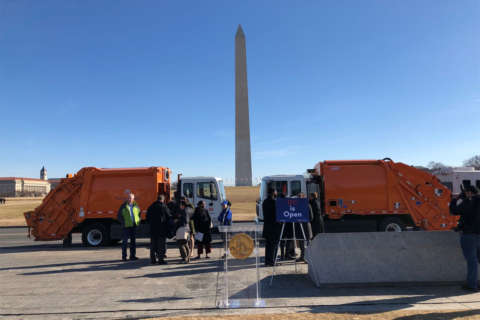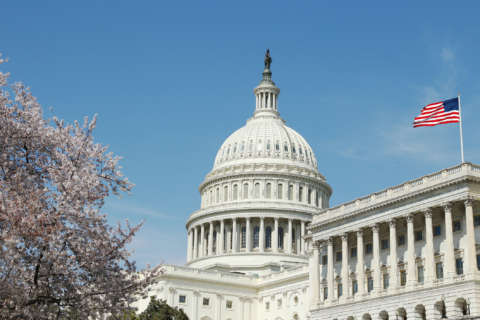WASHINGTON — The federal government shutdown was officially underway as the clock struck midnight Friday.
Hours of failed negotiating were followed by a failed 11th-hour effort to vote on a temporary funding bill. Supporters lacked the 60 votes needed to end debate on the bill, which would have kept the government open for another four weeks.
Democrats in the Senate had served notice that they would filibuster the funding bill that cleared the House Thursday evening. That exposed them to charges that they are responsible for a shutdown, but they pointed the finger at Republicans instead.
“They’re in charge,” Schumer said Friday as he entered his Capitol office. “They’re not talking to us. They’re totally paralyzed and inept. There’s no one to negotiate with.”
Republicans controlling the narrowly split chamber argued that it’s the Democrats who are holding the government hostage over demands to protect “dreamer” immigrants brought to the country as children and now here illegally.
Democrats want a deal to protect around 700,000 immigrants from deportation who arrived in the U.S. as children and have stayed here illegally. Trump has ended an Obama-era program providing those protections and given Congress until March to restore them, and he and Republicans want any immigration deal to include money for the president’s promised wall along the Mexican border and other security measures.
Trump gave Congress until March 5 to save the Obama-era Deferred Action for Childhood Arrivals program protecting young immigrants, so “there is absolutely no reason to tie those things together right now,” Budget Director Mick Mulvaney said earlier Friday at the White House.
In the House, Republicans muscled the measure through on a mostly party-line 230-197 vote after making modest concessions to chamber conservatives and defense hawks.
The short-term measure would have been the fourth stopgap spending bill since the current budget year started in October. A pile of unfinished Capitol Hill business has been on hold, first as Republicans ironed out last fall’s tax bill and now as Democrats insist on progress on immigration. Talks on a budget deal to ease tight spending limits on both the Pentagon and domestic agencies are on hold, as is progress on a huge $80 billion-plus disaster aid bill.
House GOP leaders sweetened the pending stopgap measure with legislation to extend for six years a popular health care program for children from low-income families and two-year delays in unpopular “Obamacare” taxes on medical devices and generous employer-provided health plans.
The election-year standoff marked a test of the president’s much vaunted deal-making skills — and of both parties’ political fortitude. Republicans, who control both Congress and the White House, faced the prospect of being blamed for the display of dysfunction — just the fourth shutdown in a quarter-century. It also threatens to slow any GOP momentum, one month after passage of the party’s signature tax cut law.
It’s the first shutdown since 2013, when Tea Party Republicans — in a strategy not unlike the one Schumer is employing now — sought to use a must-pass funding bill to try to force then-President Barack Obama into delaying implementation of his marquee health care law.
At the time, Trump told “Fox & Friends” that the ultimate blame for a shutdown lies at the top.
“I really think the pressure is on the president,” he said in 2013.
With a shutdown, food inspections, federal law enforcement, airport security checks, and other vital services will continue, as will Social Security, other federal benefit programs and military operations. But most federal workers won’t be paid.
WTOP’s Jack Pointer contributed to this report.
Copyright © 2026 The Associated Press. All rights reserved. This material may not be published, broadcast, written or redistributed.








